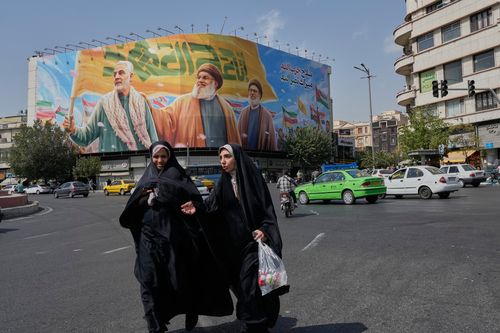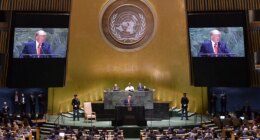Share this @internewscast.com
The United Nations on Sunday reinstated sanctions on Iran concerning its nuclear activities, intensifying pressure on the Islamic Republic. Its citizens are increasingly unable to afford basic food essentials and are anxious about their future.
The restored sanctions will once more freeze Iranian funds overseas, discontinue arms transactions with Tehran, and impose penalties on any advancement of Iran’s ballistic missile endeavors, among other restrictions.
It came via a mechanism known as “snapback,” included in Iran’s 2015 nuclear deal with world powers, and comes as Iran’s economy already is reeling.

“Every day I see new higher prices for cheese, milk and butter,” said Sima Taghavi, a mother of two, at a Tehran grocery.
“I cannot omit them like fruits and meat from my grocery list because my kids are too young to be deprived.”
The stress over food availability and the fear of conflict resuming have led to a rise in individuals seeking psychological help since June, as reported by Iranian local media.
“The mental strain from the 12-day conflict combined with escalating inflation and soaring prices has left the populace drained and lacking motivation,” Dr. Sima Ferdowsi, a clinical psychologist and a professor at Shahid Beheshti University, expressed in a July interview with the Hamshahri newspaper.
In recent years, Iran has witnessed several nationwide demonstrations sparked by economic frustrations, a demand for women’s rights, and calls for reform in the country’s governing religious system.
In reaction to these protests and the June conflict, Iran has been executing detainees at levels not seen since 1988, reminiscent of the mass executions following the Iran-Iraq war.
The Oslo-based group Iran Human Rights and the Washington-based Abdorrahman Boroumand Center for Human Rights in Iran put the number of people executed in 2025 at over 1,000, noting the number could be higher as Iran does not report on each execution.









